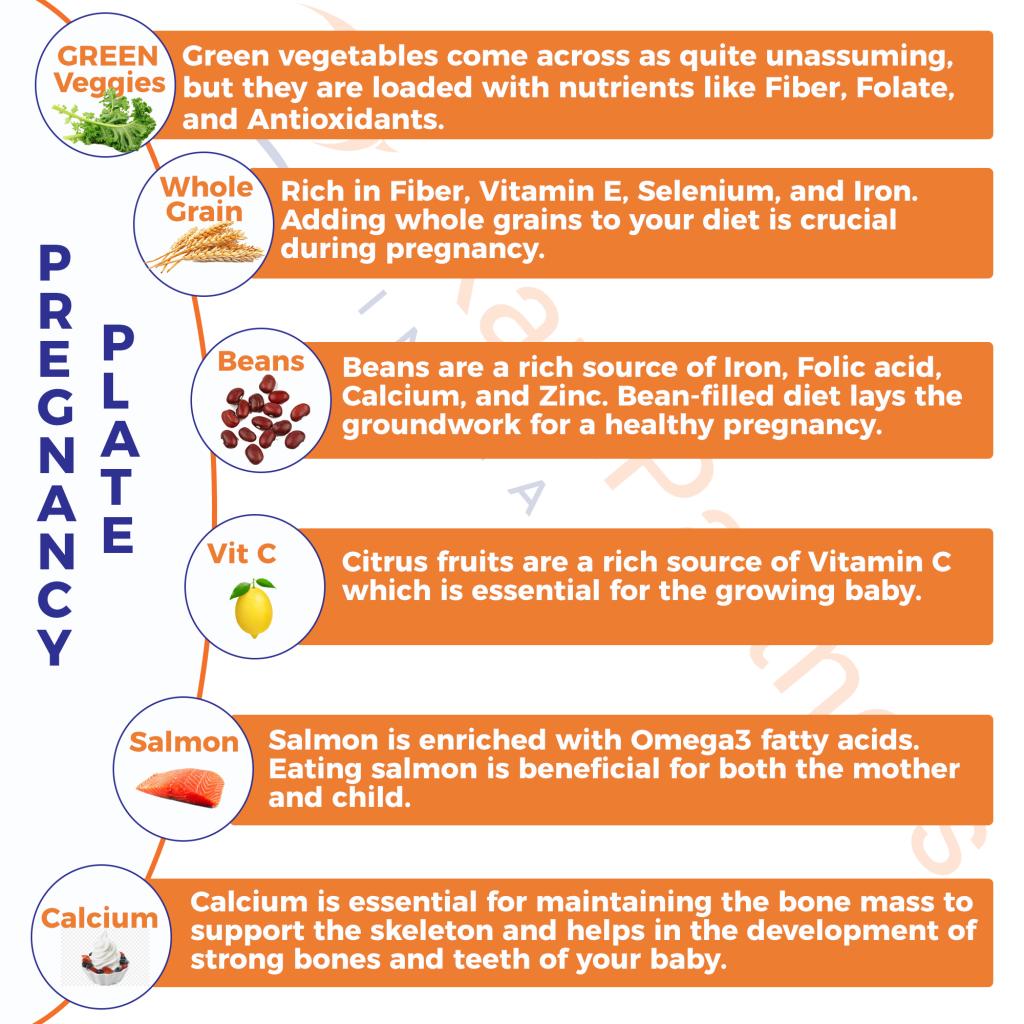Pregnancy is an experience that changes one’s life. It gets you all excited but at the same time brings you worries about — What all to do? What to eat? and How to stay healthy? And much more.
During pregnancy a woman’s body goes through a number of changes especially in the first trimester which is the first three months of your pregnancy and which is also the period when the fetus develops, it is the most critical stage of pregnancy as at this stage the fetus is the most unsafe and exposed to danger, therefore certain safety precautions should be taken for both baby’s and your health, some of them are listed here:
Smoking
It is the time you say a big NO to smoking and leaves it, in case you are a smoker or live with someone who smokes.
Alcohol and caffeine
Alcohol can lead to learning disorders and can also affect the development of fetus. Drinking during pregnancy can result in premature births or birth defects among newborns, therefore keep away from alcohol and caffeine during pregnancy.
Prescribed medications and Herbal Supplements
A pregnant woman must consult a doctor If she is taking additional medication or supplement, to check if they are safe and may react with the existing medication and can be harmful.
Rubella virus (German measles)
Rubella can lead to defects like deafness, blindness and heart diseases in the baby especially if you acquire it around the first 3 months of pregnancy, therefore, you must find an alternative for protecting yourself from this virus and get vaccinated.
Food
You are eating for two, and a healthy nutritious balanced diet is something that you should follow in your pregnancy from day one to last as your baby gets all the nutrients from you,
Here’s a list of 5 foods to eat during pregnancy( first trimester):
You must eat a lot of fruits during all the stages of pregnancy your fruit intake should be almost 3 – 4 servings every day and you must add one vitamin – C rich fruit in your diet. Fresh fruits should be preferred over canned ones and whole fruits over fruit juices.
Same as fruits a lot of vegetables should be consumed including broccoli, kale, spinach, carrots, sweet potatoes, pumpkin, winter squash, corn, yellow peppers, tomatoes, and red peppers. You can take 3-5 servings of vegetables every day.
During the first trimester, your body requires a lot of calcium intake for the proper growth of the baby and to keep your bones strong. Dairy products are rich in calcium, therefore, you must take at least 3 servings of dairy food every day. Milk, cheese, yogurt, butter, etc. are all good options.
To meet the body’s growing needs you must consume protein-rich food, taking 2 -3 servings every day is recommended — Lean meats, poultry, fish, eggs, beans, lentils, nuts, etc are an all healthy protein source.
Three servings of whole grains each day is a must in your first trimester. Whole grain foods like cereals and bread are rich in fibre that the body needs during pregnancy.
Along with all these foods, it is important to take all the prenatal vitamins prescribed by the doctor. Everything is not suitable to be a part of your pregnancy and there are foods that you should avoid during the first 3 months of pregnancy :
Travelling DURING PREGNANCY:
Nausea, vomiting, fatigue and other health issues are experienced during the initial months of pregnancy and this can make travelling a problematic experience also there is a high risk of miscarriage during this stage therefore it is better to avoid long distance travelling as it can not only cause inconvenience but can also affect the development of the foetus. Consider travelling only if the pregnancy is stable and you are allowed by the doctor.
Travelling by air is safe during pregnancy and the first trimester is a great time to travel as there is no radiation risk and all the cabins are pressurized.
Travelling by car is not a problem during pregnancy but can cause inconvenience as you need to stop to urinate many times. Unruly traffic, bumpy and pot-holed roads also make travelling uncomfortable because you will have to stretch your legs as you cannot stay in the same position for long.
EXERCISE TIPS
The best exercise during pregnancy is yoga, it builds inner strength and balance, reduces blood pressure and teaches breathing rhythms that help during the time of delivery. You can practice some gentle postures and avoid: back bending positions that twist the abdomen.
Yoga is healthy as long as you don’t overexert yourself. A half hour session every day works well. Walking is a great exercise as well because it keeps you moving and builds your upper body’s strength and gets your heart pumping 10 minutes walk daily and 3 to 5 times in a week is recommended for a pregnant woman.
SECOND TRIMESTER
Women feel their best at this stage of pregnancy in spite of the changes going on in their body because nausea and fatigue end by now and the baby bump is also not big enough to create discomfort. It is also the time when baby’s first movements are felt by the mother. However, there are some precautions that should be followed:
Stay Hydrated:
The body works hard for the development of the baby. Therefore it’s important to drink lots of water and keep the body hydrated as it is the fuel that is required in the development process.
Adjust Your Exercise Routine:
During the second trimester, women need to stay comfortable and safe with the growth of the belly. Therefore they should practice only gentle exercises.Wear Sunscreen:
If you spend a lot of time outdoors ensure that you wear a lot of sunscreens as during pregnancy the skin becomes sensitive and you can get sunburns.
Look For Signs of Gestational Diabetes:
Gestational Diabetes can surface in the second trimester, therefore, keep a check on the symptoms like extreme thirst, tiredness, and blurred vision, consult a doctor if you go through any of these.
Keep A Check On Your Weight:
A pregnant woman gains about a pound a week during the second trimester. A doctor should be consulted if the weight is higher or lower than this.
WHAT TO EAT DURING the SECOND TRIMESTER:
A healthy pregnancy diet consists of Calcium, magnesium-rich food, and vitamin D, important in the second trimester. Some of these foods include:
A glass of milk:
Calcium helps in the development of baby’s bones and teeth and a vitamin D supplement helps your body to absorb this calcium. A glass of semi-skimmed milk has calcium and magnesium. You can opt for calcium-fortified soy foods, like soya yogurts or plain low- fat yoghurt if you don’t take dairy products.
Baked potato with beans:
Magnesium is used by the body to generate energy and develop the bones, Iron helps in growth of the baby and making red blood cells. Baked beans with potato are rich in magnesium, iron, and fiber.
A variety of vegetables
Vegetables like broccoli, green beans, carrots, cabbage, and okra should be consumed as they are rich in magnesium and calcium. Avoid overcooking vegetables and opt for stir-fry or steam to retain the nutrients.
Sunflower and pumpkin seeds:
Sunflower seeds and pumpkin seeds are rich in magnesium, iron, and omega-3. They can be taken as a snack or can be added to salads.
Dried fruit:
Dried fruit such as apricots, dates, and figs can prove to be a great snack and can also be eaten with low-fat yogurt. They are rich in calcium and iron which is highly recommended during pregnancy.

TRAVELLING DURING :
If there are no complications in the pregnancy It is perfectly safe to travel also the second trimester is the ideal time to do so, but one must make sure that the travelling is done in a comfortable way. A few things that can make things better are:
It is difficult to travel by buses compared to trains as the aisles are narrow and there is less space. Travelling by air is the safest and the most comfortable.
EXERCISE TIPS:
Yoga:
At this stage of pregnancy positions that are stressful should be avoided and positions that require lying down on the back or sitting should be practised.
Exercise While Lying Down:
Exercising while lying down is an easy way to practice body movements, one of the few exercises includes: Lying on the left side bending the knees and the hips at 45 degrees. Then raise the right knee as high as possible and hold the position keep repeat the movement but make sure the pelvis does not move.
Exercise While Sitting:
During this stage you can do simple exercises that require sitting, for example, sitting on a chair and moving the legs like you do while cycling. You can do similar exercises and stay healthy.
THIRD TRIMESTER:
The third trimester can be difficult both physically and emotionally, you may experience a lot of changes in the body along with severe pains and swelling. The delivery may worry you but you need to be careful of a few things:
Not to Sleep On Your Back:
A pregnant woman’s weight can reduce the blood flow to the uterus and fetus, therefore, a pregnant woman should sleep on her side and avoid sleeping on her back.
Take Rest:
Resting more and getting less involved in physical activities is beneficial in the third trimester. One should stay away from stress, anxiety and should take a lot of rest.
Visit the doctor:
If you experience back pains, swelling or cramps similar to those that happen during the period you must immediately see a doctor without ignoring them.
WHAT TO EAT DURING PREGNANCY:
Eat as much healthy food as you can as it is the key to maintain a healthy pregnancy. Some of the foods one must eat in the third trimester are:
Fruits:
Fresh fruits such as kiwis, strawberries, banana, and melon should be included in the diet during pregnancy as these are rich in vitamin C and helps to maintain a healthy immune system as well as help in the development of the placenta.
Lentils:
You can have soup, porridge etc but the intake of lentils is important as it is rich in fibers and vitamins.
Seeds and nuts:
Nuts, dry fruits, seeds, muesli etc are some good foods to have during pregnancy as they provide with essential vitamins, omega-3 fatty acids, and proteins etc Eggs, papaya, milk and its products are other essential foods that must be taken during pregnancy.
Travelling:
You must avoid travelling during this period as it can be really stressful and uncomfortable. It can also involve risks like: preterm labor, difficulty in the birth process etc, therefore, restricting travelling during this stage is the best option.
EXERCISE:
Some of the exercises that woman should practice in their third semester are: Walking, Proper Sitting, Leaning, Pelvic Rocks (aka Pelvic Tilts or Cat-Cow Stretch) and Butterflies as they help in maintaining a healthy pregnancy.
Gynaecology encompasses psychological, physiological, medical, hormonal and the sexual aspects of patients. Dr. Shruti Gupta is the best gynaecologist in Chandigarh who is compassionate and detail oriented and Mother and Child is the best maternity hospital in Chandigarh. A complete medical history is taken down, the physical exam is done, and certain tests and procedures are performed to evaluate the health of both you and your baby yet to be born.


